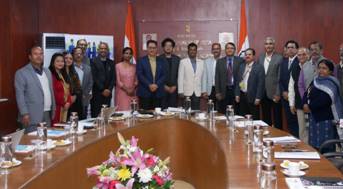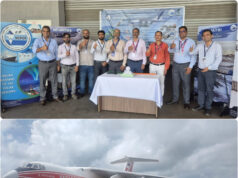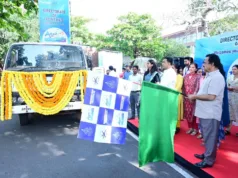Union Minister, Ministry of Earth Sciences (MoES), Kiren Rijiju, flagged off India’s first winter scientific expedition to the Arctic from the MoES headquarters in New Delhi. Indian scientific expeditions to the Arctic during the winter (November to March) will allow researchers to conduct unique scientific observations during polar nights, where there is no sunlight for nearly 24 hours and sub-zero temperatures (as low as -15 degrees Celsius). This will aid in expanding understanding of the Arctic, especially climate change, space weather, sea-ice and ocean circulation dynamics, ecosystem adaptations, etc., which affect weather and climate in the tropics, including monsoons.
Since 2008, India operates a research base in the Arctic named Himadri, which has been mostly hosting scientists during the summer (April to October). The decision to facilitate winter expeditions to the Arctic comes after an in-person review of India’s Arctic activities by Rijiju at Himadri, Ny-Ålesund, Svalbard in the Norwegian Arctic, in June 2023. Elaborating on ambitious plans of the Government to expand India’s scientific prowess, the Union Minister said, “Towards achieving the vision of the PM, Narendra Modi, of making India a developed nation by 2047, we are committed to expanding scientific activities and international cooperation and collaboration. Artic is an area of scientific, climatic, and strategic importance; hence, our scientists will have to play a vital role in addressing areas that affect life and survival on this planet”. He encouraged and interacted with members of India’s Arctic expedition who are set to depart from New Delhi for Himadri on December 19, 2023, and wished them a safe and productive stay. The first batch of the maiden Arctic winter expedition comprises researchers from the host NCPOR, Indian Institute of Technology (IIT) Mandi; Indian Institute of Tropical Meteorology (IITM), Pune; and Raman Research Institute, Bengaluru.
Dr M Ravichandran, Secretary, MoES, said, “The launch of winter expeditions marks an important milestone for India’s Arctic endeavours, which opens more avenues for us to expand our scientific capabilities in Earth’s poles”. Vishwajit Sahay, Additional Secretary and Finance Adviser, MoES; D Senthil Pandian, Joint Secretary, MoES; Dr Vijay Kumar, Head, PACER (Polar and Cryosphere) and Scientist G/Adviser, MoES; Dr Thamban Meloth, Director, NCPOR; and Dr Manish Tiwari, Scientist F and Group Director of the Arctic Operations, NCPOR, were key dignitaries at the event.
Launching winter expeditions to the Arctic makes India among select nations with extended in-time operations in the Arctic. Priority research areas include atmospheric, biological, marine, and space sciences, environmental chemistry, and studies on cryosphere, terrestrial ecosystems, and astrophysics. To facilitate the Arctic expeditions, NCPOR reviews research proposals from across the country invited through an open call for applications to conduct cutting-edge research in the Arctic region. “This year, MoES received 41 proposals for winter Arctic research, of which 15 have been shortlisted after a thorough peer review and expert selection committee process”, informed Dr Meloth, Director, NCPOR.
Indian scientific expeditions to the Earth’s poles (the Arctic and the Antarctic) are facilitated under the PACER (Polar and Cryosphere) scheme of the MoES, solely through the aegis of the National Centre for Polar and Ocean Research (NCPOR), Goa, an autonomous institution of the MoES.






